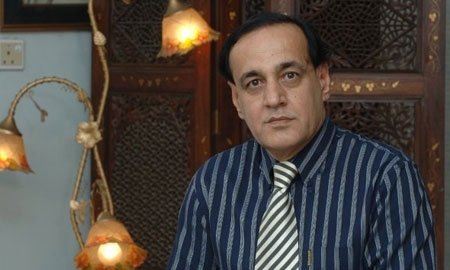The top military leadership after having discussed security in the region, particularly in Afghanistan, have reiterated their commitment to regional peace and security. The armed forces along with the nation want to thwart the nefarious intentions of politically motivated digital terrorism orchestrated by conspiratorial elements and their foreign groups, aimed at undermining state institutions. The statement came during Friday’s 265th Corps Commanders Conference (CCC) chaired by Chief of Army Staff (COAS) General Syed Asim Munir at GHQ Rawalpindi. The forum paid tribute to the great sacrifices of martyrs, in which officers and men of the armed forces, law enforcement agencies, and citizens laid down their lives to ensure peace and stability in the country. The forum decided that the terrorists, their facilitators working at the behest of hostile forces to destabilize Pakistan would face full might of the state. Operation Azm-e-Istehkam will combat resurgent terrorism and extremism by leveraging the full spectrum of national power, involving all elements of the country’s security apparatus. The announcement of Operation Azm-e-Istehkam sparked a political firestorm, with opposition parties and leaders criticizing the government’s lack of transparency and consultation. The critics have demanded answers to the true aims of Operation Azm-e-Istehkam, warning that it could further destabilize the country. They have called for parliamentary debate and approval, with many insisting Operation Azm-e-Istehkam needs a broad political consensus. The criticism has forced the government to address concerns. A comprehensive review of the internal and external security situation took place with a detailed discussion on Operation Azm-e-Istehkam aimed at eradicating terrorism and illegal activities for sustainable stability and economic prosperity. The forum expressed concern over the unwarranted criticism and deliberate misrepresentation of the Army’s vision. Since 1948, the Pakistan Army has been engaged in various important activities such as generating electricity for needy areas, Building dams, building towns and cities, and conducting rescue operations to rescue both civilians and animals from dangerous situations. During national calamities, such as the devastating earthquake in 2005 or the major floods in 2010, the Army’s engineering corps, medical teams, logistics personnel, and other branches of the armed forces played an important role in the rehabilitation of the affected areas, cities and towns and the distribution of relief supplies and military rations to the affected civilian population. In addition to their relief activities within Pakistan, the Pakistan Army has extended its assistance to other regions around the world. Notably, the Army coordinated and led relief efforts in countries such as Indonesia, Bangladesh, and Sri Lanka after the 2004 underwater earthquake and tsunami disaster. Pakistan Army plays an important role in the protection of the CPEC, which is a very important project for the national economy. It is a massive infrastructure and development initiative designed to connect the Gwadar port in Pakistan with China’s northwestern Xinjiang region through an extensive network of roads, railways, and pipelines. The government’s move to set up a Special Investment Facilitation Council has strong support from the military leadership. This significant development underscores the steadfast commitment of the Chief of Army Staff, General Asim Munir, a visionary leader who fully recognizes the essential link between national security and economic well-being. The military’s engagement in agriculture has contributed substantially to economic diversification. Through a range of agricultural initiatives, the military has introduced modern farming methods, improved irrigation systems, and offered training to farmers. These efforts have led to higher crop yields and increased welfare of farmers. Apart from its primary duty of protecting the country, the Pakistan Army has contributed significantly to the country’s economy. These contributions include job creation, infrastructure development, disaster relief efforts, agricultural and industrial projects, corporate efforts, and investment in research and development.
Echoes of Justice
The news report lay on Fatima’s kitchen counter, the bold headline a beacon in the morning sun. “Supreme Court Affirms...
Read more







